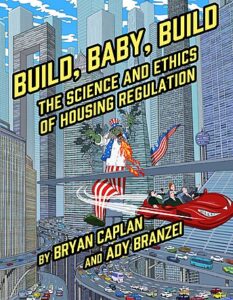
Often, when I advocate the abolition of a particular regulation, I am criticized for thinking that my proposal is a panacea. Usually this is wrong: I point out that it would move things in the right direction but is not close to being a panacea.
I suspect that for most of the policies he advocates, Bryan Caplan has the same reaction as me. But he says housing deregulation is indeed a panacea. He argues forcefully, using data, that deregulation would reduce the cost of housing, and thus poverty, reduce income inequality, reduce traffic congestion, restore the geographic mobility that we older people knew in the 1970s, when we were younger, would provide construction jobs, and even reverse fertility decline.
According to Caplan, a conservative estimate, again supported by footnote data, housing deregulation would reduce the cost of housing by about 50 percent. Given that housing costs make up about 20 percent of the average American household’s budget, the cost of living would be 90 percent of what it is now, meaning that the standard of living would increase by 11 percent (100 divided by 90 = 1.11.)
The effects of deregulation would be greatest for low-income people, Caplan notes. The reason is simple: low-income people spend a larger share of their income on housing. This also means that deregulation would reduce income inequality.
This is from David R. Henderson, “Build, baby, build“, Define ideasJune 20, 2024. This is my review of Bryan Caplan’s book book of the same name.
Read it the totality.


